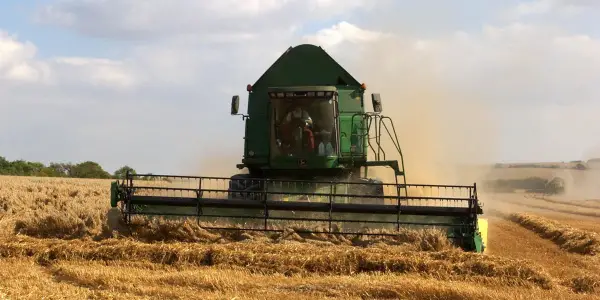Irish farmers have weighed into the Brexit debate by urging their friends and relatives in the UK to vote to remain in the EU.
Agriculture leaders said the stakes are highest for their sector with food trade across the Irish Sea and into Northern Ireland worth 4.4 billion euro a year.
The Irish Farmers’ Association (IFA) said sales into the UK of half of Ireland’s beef, 60% of the country’s cheese, almost every mushroom and 350 million euro of pork products are at risk from Brexit.
IFA president Joe Healy said the sector would also face added costs from tariffs, quotas and border controls and the threat that Irish foods would be pushed off UK supermarket shelves if Britain strikes better trade deals with other countries.
“With a long history of emigration to the UK to find work, all Irish farm families have family members, relatives and friends living in the UK and eligible to vote,” he said.
“We are asking farm families, families in rural Ireland and across the country to communicate the concerns and risks that we are highlighting today.”
The IFA warned that Brexit would bring added risks to agri-food and animal health on the island of Ireland if the UK splits from the EU.
The farmers’ group said threats could increase because of the shared land border and the potential for different regulatory regimes in Ireland and the UK.
It also warned that European subsidies paid to Irish farmers under the Common Agriculture Policy would be in danger from Brexit as the UK boosts the Brussels budget by about eight billion euro.
Mr Healy said Ireland shares strong economic, social and cultural links with the UK which make the country “a very important partner and ally in Europe”.
“Should the UK vote to leave the EU, Irish agriculture would undoubtedly suffer negative consequences, both in the short term and the longer term,” he said.
“Already in 2016, we have seen a weakening of sterling against the euro, arising mainly from the uncertainty on the referendum outcome. This has reduced the competitiveness of Irish exports, with a disproportionate impact on the Irish agri-food sector.”
Meanwhile, Foreign Affairs Minister Charlie Flanagan, sat down with government advisers in Dublin to assess threats to exports.
“From the trade union movement to the business community and across the political divide, there is a consensus that anything that might get in the way of a seamless flow of goods, services, capital and people between Ireland and Britain would be extremely unwelcome,” he said.
“I saw first-hand the potential for growing even further the trade links between Ireland and every region of Britain. We want to see both of our economies continuing to flourish, to the benefit of all.”
